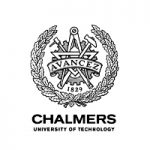项目介绍
PROGRAM DESCRIPTION:
History and Theory Track
The interdisciplinary nature of the doctoral (Ph.D.) program stresses the relationship of architecture, urbanism, landscape, and building technologies to their cultural, social, and political milieu. Supported by strong affiliations with other departments in the humanities, sciences, and social sciences, the program has developed a comprehensive approach to the study of the field. Students interact with their peers to sustain their individual projects in a context of collective research.
Computation and Energy Track
The technology Ph.D. track develops research in the field of embodied computation and new systems for energy and environmental performance. Through associated faculty it is linked to the School of Engineering and Applied Science, particularly with Computer Science and the Andlinger Center for Energy and the Environment. A proseminar for the Ph.D. track supports the initial methods and processes for this research. The applied research component of the track is supported by infrastructure including an industrial robotic arm located in the School of Architecture’s Embodied Computation Lab and research facilities in the Andlinger Center.COURSES:
History and Theory Track
Course requirements for each student are determined by the Ph.D. Program Committee according to students’ previous experience, specialized interests, and progress through the program. For the first two years, each student engages in course work and independent study and is required to take a minimum of four classes each term, including required language and independent reading courses, for a total of 16 courses.
In the first year of residence, a required two-term proseminar introduces students to historical research and methodological approaches and guides the development of individual research proposals. The minimum number of courses are reduced by one when a student serves as an assistant-in-instruction (AI). This does not reduce the number of required papers; the AI assignment replaces an audited course.
Computation and Energy Track
Course requirements for each student are determined by the Ph.D. Program Committee according to the student’s previous experience, specialized interests, and progress through the program. During the first year of residence, a two-term proseminar introduces students to the process of developing prototype-based research, the literature review process, and methods for innovative scientific hypothesis generation and analysis. It also guides the development of individual research proposals. The course requirements for each student are set by the Ph.D. Program Committee according to the student’s previous experience, specialized interests, and progress through the program. The course load consists of a total of sixteen courses, nine of which have to be taken for credit, including two required proseminar courses during the first two years of study. Extending the reach of previous coursework, four research projects have to be developed, documented in paper format, and submitted as a package for the general examination once coursework is completed. The coursework must have an interdisciplinary focus that supports the student in developing expertise in an area of research as an extension of the architectural core that serves as the basis for developing a dissertation proposal. LANGUAGE(S):
A student must satisfy the program requirement of a reading knowledge of two foreign languages before the end of the second year in residence. These languages should be relevant to the general history of the discipline or specifically relevant to the student’s area of research. An examination of comprehension is administered by the appropriate language department.PRE-GENERALS REQUIREMENT(S):
Each year in mid-May, doctoral students are expected to present a progress report for review with the Ph.D. Program Committee. The purpose of these oral reviews is to give feedback to the student and to keep all members of the Ph.D. Committee informed about the work of all students. The progress report should list courses taken for grades or audit, papers completed or in progress, grades received, and a description of how courses relate to the student’s major and minor fields of concentration. The report should also note conferences attended, lectures given, teaching and/or research assistantships. Second-year reports incorporate a prospectus on the materials to be included in the general examination dossier. The prospectus includes a list of six papers (History and Theory track) or four research project reports (Computation and Energy track) to be included in the general examination dossier accompanied by a statement connecting this research and writing to the student’s major and minor fields of concentration.GENERAL EXAM:
The general examination is designed to ascertain the student’s general knowledge of the subject, acquaintance with scholarly methods of research, and ability to organize and present material. The components of the general examination are assembled sequentially during the student’s period in residence, according to a program overseen and approved by the Ph.D. Program Committee. The general examination is normally taken upon completion of two years of course work (preferably in the fall of the third year in residence).
Students begin this process by requesting that the examination be held and submitting a list of suggested committee members. The next step is the preparation of a dossier of six papers (History and Theory track) or four project papers (Computation and Energy track) to be presented by the student, including at least one research paper in the area of the dissertation topic and a short (one- or two-page) outline of the intended dissertation topic. The research paper must clearly define the field of research; it must comment on the state of existing research in the selected field and explain the contribution to the field that the paper is making. It must make a coherent statement about the archival sources or theoretical objects under examination and the methodological approaches taken. The research paper is either devoted to archival research, or encompasses an original theoretical exploration. An annotated bibliography must be included. For the Computation and Energy track, the research paper is to be developed into an academic paper at a level of submission to peer-reviewed scientific journals. For the History and Theory track, a paper in the generals package can be replaced with an annotated bibliography, accompanied by an introductory essay. The bibliography will outline a focused historico-theoretical field in the area of the intended dissertation.
The general examination itself is conducted in two parts: a satisfactory oral defense, and the acceptance by the committee of the dissertation proposal, followed by a public presentation. The oral defense is scheduled after the examination committee has read and reviewed the papers, and confirmed that the language requirement is satisfied and that no incompletes or failing grades appear on the student’s record. Following the successful completion of the oral defense, and within a period of two to three weeks, the student selects a primary dissertation adviser from among the Ph.D. Program Committee to guide the dissertation research. The assignment of the adviser is subject to approval by the Ph.D. Program Committee. The student works with the dissertation adviser to develop a detailed proposal that clearly defines the field of research, comments on the state of existing research in the selected field, and explains the contributions to the field the dissertation will make.
The student presents the dissertation proposal within six months of completion of the general exam. After the successful public presentation of the proposal, the examination committee discusses the proposal and other relevant aspects of the program with the student. Successful completion of the two parts of the general examination signals the transition to supervised independent scholarly work on a topic of the student’s choosing.QUALIFYING FOR THE M.A.:
The Master of Arts (M.A.) degree is typically an incidental degree on the way to full Ph.D. candidacy and is earned after a student successfully completes the general examination. It may also be awarded to students who, for various reasons, leave the Ph.D. program after successfully completing the general exam.TEACHING:
Teaching experience is considered to be a significant part of graduate education. The School recommends that Ph.D. candidates serve as Assistants-in-instruction (AI) for at least one term.POST-GENERALS REQUIREMENT(S):
Following the general exam, students meet with the Ph.D. Program Committee each spring. These reviews provide opportunities for all members of the Ph.D. Committee to review progress and provide feedback. Students submit a progress report describing publications, conferences attended, lectures given, teaching or research assistantships completed. The report also includes progress on dissertation writing, funding applications, etc. At least one new dissertation chapter must be submitted in each of the post-generals years.DISSERTATION AND FPO:
The culmination of the program is the defense of the finished dissertation at the final public oral (FPO) examination, which includes the thesis adviser, a second reader from the Ph.D. Committee, and a third internal or external reader. For full FPO committee composition requirements, please consult the Graduate School website.
Advisers read and comment on initial drafts of the student’s dissertation, consult on methods and sources, and approve any changes in the dissertation outline stemming from research discoveries and shifting emphases. The School often recommends that additional readers from inside or outside the School review sections of the research. The research toward a dissertation normally includes at least one year spent on archival research.
The Ph.D. is awarded after the candidate’s doctoral dissertation has been accepted and the final public oral examination completed.
联系方式
电话: 609-258-3000相关项目推荐
KD博士实时收录全球顶尖院校的博士项目,总有一个项目等着你!






